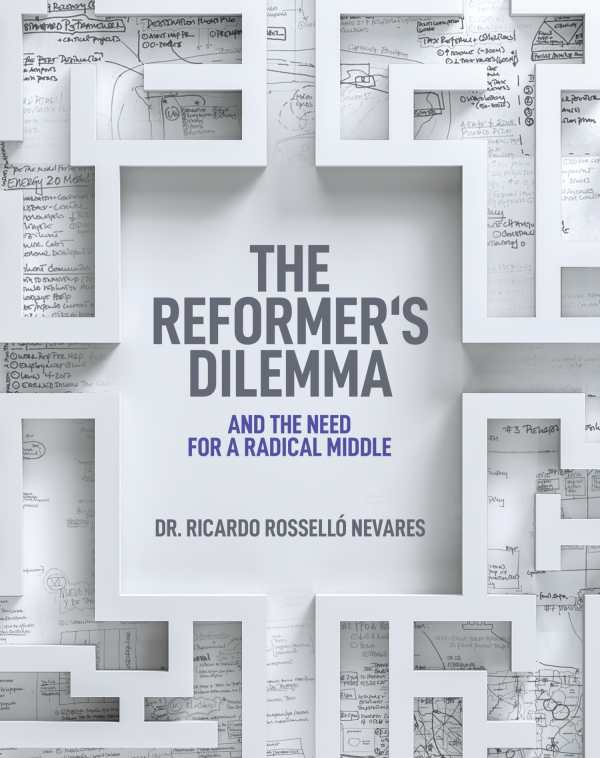The Reformer’s Dilemma
And the Need for a Radical Middle
A former governor’s persuasive call to urgent political reform, The Reformer’s Dilemma is a resonant memoir regardless of one’s political affiliation.
Ricardo Rosselló Nevares’s ruminative memoir The Reformer’s Dilemma covers his gubernatorial career and issues a call to action against demagoguery, dehumanization, and polarization in politics. It proposes the creation of a radical middle contingent to offset the extreme left and right.
The book balances practical and complex outlines of the political history of Puerto Rico, the checkered tenures of former administrations, the United States’ convoluted relationship with the island as a commonwealth colonial territory, and Rosselló’s own vision for workable change. Rosselló’s pre-political life as a scientist anchors the format: the book outlines specific agendas in neat sections, including Rosselló’s administration’s Plan for Puerto Rico, while also covering the island’s educational and health care outlooks and addressing its continued struggle toward statehood. And it utilizes copious graphs, newspaper clippings, and other media ephemera to support its narrative.
As much as The Reformer’s Dilemma is an autobiography of Rosselló’s tenure as governor of Puerto Rico—before, during, and after the scandal that precipitated his resignation from office—it is also a guidebook of sorts for effective leadership in tumultuous political landscapes. Rosselló’s analysis is equal parts infuriating and insightful, broaching the incendiary minutiae of his gubernatorial downfall and highlighting the loftier moments of the reforms he was intent on enacting. Considerable emphasis is placed on the value of political coalitions, the pitfalls of dehumanization and “othering” from partisan spectra of government, and the power of planning and taking advantage of policy windows for getting reform visions through to the finish line. And Rosselló’s insights and strategies are later put into the context of his call for a “radical middle”—defined as “a movement that fosters an open space, uniting individuals who may not align on all issues, but share core values and a collective aspiration to solve problems.”
As the book progresses beyond the more salacious touchstones of the publicized protests stemming from Rosselló’s transgressions—which included allegations of misogyny and homophobia—the former governor steers the message of his book toward both his accomplishments and his failures, examining them with clear-eyed logic and regret. In several revealing passages, Rosselló admits his shortcomings as a leader and his ignorance of the signals of his deficiencies in power, showing how each undercut his focus on the positive drivers of his campaign.
The chapters are tidy. They feature political cartoons at their outsets and takeaway sections at their endings, simulating an academic tome. But at times, the book becomes too esoteric, as where it works to quantify Rosselló’s approach to the odds a true political reformer might have based on a varying set of movable criteria. Elsewhere, though, Rosselló demonstrates the power of political narrative in opposition to his agenda’s quantitative progress, as well as the power of media image and public perception—illustrated, in part, with the example of Donald Trump, whose sojourn to Puerto Rico following Hurricane Maria is dissected in riveting detail.
The Reformer’s Dilemma is an informative and compelling politician’s memoir that encapsulates a turbulent time in the history of Puerto Rico.
Reviewed by
Ryan Prado
Disclosure: This article is not an endorsement, but a review. The publisher of this book provided free copies of the book and paid a small fee to have their book reviewed by a professional reviewer. Foreword Reviews and Clarion Reviews make no guarantee that the publisher will receive a positive review. Foreword Magazine, Inc. is disclosing this in accordance with the Federal Trade Commission’s 16 CFR, Part 255.

